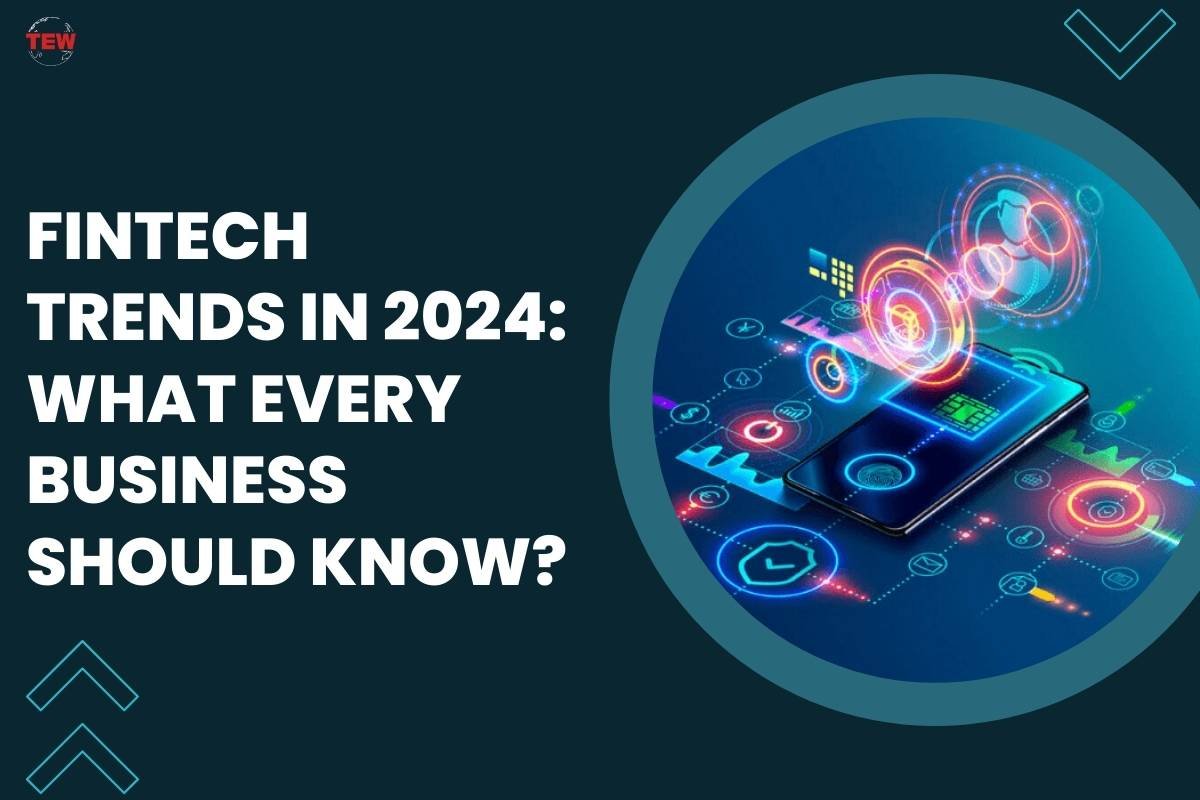(Source-RegtechOne)
From digital payments to AI advisors, financial technology is transforming how businesses operate. To get ahead of the curve, smart companies need to understand the fintech trends that will shape finance in 2024 and beyond.
Fintech has been reshaping how companies handle money, serve customers, and make strategic decisions. In 2024, the landscape shows no signs of stagnating. This guide reveals the exciting fintech developments that every forward-thinking business should know to thrive in the years ahead. Read on now to explore the top fintech trends to watch and understand why they matter to your business.
Understanding Fintech
The fintech revolution seeks to transform the world of finance through innovative technologies. By leveraging software, data, and AI, fintech is continuously changing how financial services are accessed and delivered to streamline processes and improve experiences.
Some of the key areas where fintech trends is making an impact include:
- Digital payments: Services like PayPal, Venmo, Square, and Apple Pay allow fast and easy digital transactions without traditional cash.
- Lending and financing: Financial technology and data analytics make loan provisions, financing, and credit risk assessment more efficient and effective. Examples are lending apps and crowdfunding platforms.
- Personal finance: Budgeting apps, robo-advisors for investing, and tools help to manage taxes and bills, improving how everyday people manage money.
- Banking infrastructure: The technological infrastructures banks and other financial institutions rely on are constantly improving, especially in regard to security, accounting software, and messaging.

The main goals driving fintech adoption are to reduce costs, improve the customer experience, increase accessibility to financial services, and streamline inefficient processes. As such, fintech is bringing major changes in how finance works for businesses and consumers.
Fintech Trends In 2024
Here are the top fintech trends to watch out for this year:
1. Digital Payments
Digital payments are accelerating, with advanced mobile wallets and contactless in-app purchasing dominating commerce. People and businesses will rely less on cash and more on digital wallets and online payment systems.
Cashless options, such as Apple Pay and cryptocurrencies, gain mainstream traction in 2024. Businesses must adapt quickly to frictionless payment methods to stay competitive. Embracing secure digital payment technology satisfies modern purchasing preferences.
2. Central Bank Digital Currencies (CBDCs)
Central banks in various countries are developing digital forms of national currencies that operate like traditional money: CBDCs. These government-backed digital currencies could provide businesses and consumers with faster, simpler transactions and payments.
As CBDCs gain wider adoption, they may substantially transform financial systems by reducing reliance on cash and commercial banks. Businesses worldwide should monitor CBDC developments as they emerge since mainstream adoption could significantly disrupt financial operations and money management.
Consulting firms, such as AU Digital Solutions, can help companies understand and prepare for the opportunities and risks associated with CBDCs. With their expertise in financial technology and emerging digital payments, they can provide strategic advice.
3. Decentralized Finance (DeFi)

DeFi lets people lend, borrow, and trade money digitally without banks. These digital financial services will keep spreading. They work using smart contracts instead of middlemen. Businesses should explore opportunities to participate in or collaborate with DeFi projects to streamline financial processes.
4. AI And Machine Learning
Computers are getting smarter at learning from data. In 2024, more businesses will use these ‘smart’ programs for help with money matters. They can spot credit card fraud, forecast financial trends, and give customers tailored tips. AI and machine learning can improve service provision.
For example, chatbots will use AI to answer questions. Programs will review data to flag risky transactions. And businesses can get money insights to make wiser choices. As AI keeps advancing, it will change how finance works. Companies should prepare to use it to their advantage.
5. Cybersecurity
Cyberattacks pose serious threats. Safeguarding data will be crucial for fintech firms and payment-accepting businesses. Fintech companies will apply biometrics, encryption, and blockchain technologies to reduce fraud and cyber threats.
Adopting advanced security like encryption and blockchain will help prevent breaches, fraud, and losses. Prioritizing cybersecurity minimizes risks and maintains essential consumer trust in digital transactions.
6. Blockchain Beyond Cryptocurrencies

Blockchain is the reason behind cryptocurrencies like Bitcoin. But it can also help companies in other ways too. In 2024, businesses should use it to improve supply chains, enhance identity verification, and streamline cross-border payments.
Blockchain technology allows you to securely share data without middlemen. It can make supply chains more traceable and contracts smarter. Businesses should pay attention to how blockchain technology is being applied in areas beyond cryptocurrencies. Finding new uses like better data sharing can improve business processes.
Conclusion
The fintech innovations outlined promise to continue revolutionizing the financial landscape. Businesses must educate themselves and adapt quickly. These innovations are not merely trends; they represent a fundamental shift in how finance operates.
By offering modern consumers superior digital experiences and staying ahead of the curve, businesses will maintain their competitive edge, paving the way for success in the next generation of financial transformation.




